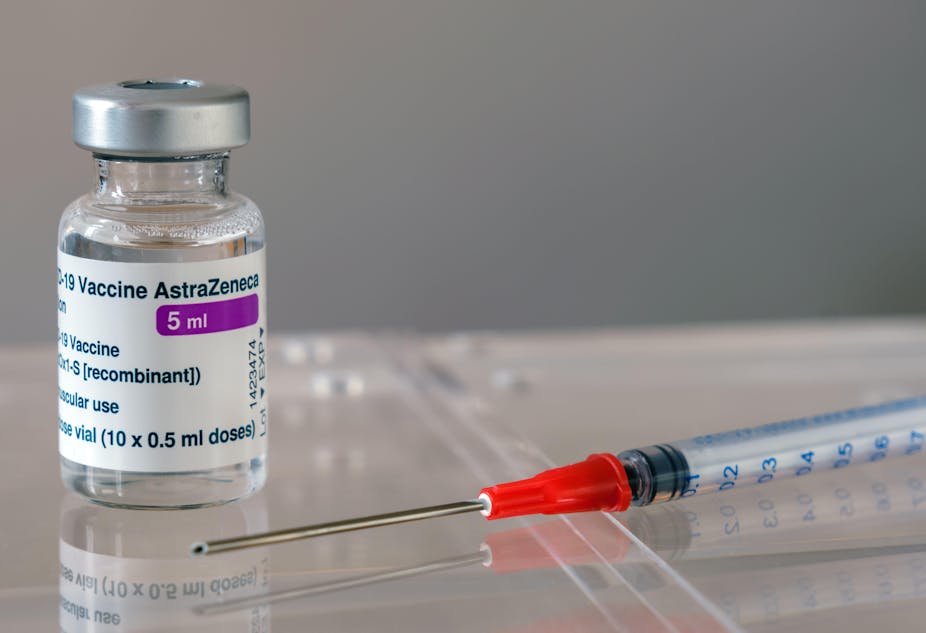The European Medicines Agency has said that the Oxford/AstraZeneca vaccine is safe and effective, and not associated with an increased overall risk of developing blood clots.
The regulator conducted a review of the vaccine after a small number of people developed blood clots in Europe after receiving the vaccine. Thirteen countries suspended the use of the AstraZeneca vaccine in response.
In the UK, the Medicines and Healthcare Products Regulatory Agency also stated the evidence does not suggest that blood clots in veins were caused by the AstraZeneca vaccine. Both agencies strongly emphasised that the benefits of being vaccinated far outweighed any potential risk.
They also noted that blood clotting could be a consequence of COVID-19 itself. This is just one of a host of other causes of clots, which are laid out here by Adam Taylor, Professor in Anatomy at Lancaster University.
Following the announcement, France, Italy and Latvia will resume AstraZeneca vaccinations. But why did so many countries suspend it in the first place?
It could be down to the way governments have used the precautionary principle, writes Anthony R Cox, Reader in Clinical Pharmacy and Drug Safety at the University of Birmingham. This is a tool governments use to decide whether to take action to avoid potential harm – such as getting COVID-19 – even when the evidence around that harm is uncertain. Cox argues the principle has been misapplied in this case, with countries emphasising the extremely low risk of blood clots over the much higher risks associated with with lower vaccine coverage, which could lead to many more deaths from COVID-19.

This is our weekly round-up of expert information about the COVID-19 vaccines.
The Conversation, a not-for-profit group, works with a wide range of academics across its global network to produce evidence-based analysis and insights. Get more regular updates from trusted experts by subscribing to our free newsletter .
The investigations into the risk of blood clots are not the only issues the AstraZeneca vaccine is facing. The UK’s Joint Committee on Vaccination and Immunisation has warned of a delay in under-50s getting immunised because of supply issues from India, while the EU Commissioner, Ursula Von Der Leyen, has threatened has threatened to restrict exports of the vaccine if supply in Europe does not improve.
The AstraZeneca suspensions have the potential to further fuel vaccine hesitancy in Europe and elsewhere. In the UK, vaccine hesitancy is higher and uptake lower among people from black, Asian and minority ethnic backgrounds in the UK. But that doesn’t mean people can’t be brought round. Three members of the Oxford Vaccine Group share some evidence-based strategies for addressing hesitancy. It all starts with having one-on-one conversations with people about their concerns.
As the vaccine rollouts stall, the SARS-CoV-2 virus that causes COVID-19 continues to mutate into new variants, some of which become the dominant versions circulating in the community. But the antibodies we create to fight the virus also mutate, write Sarah Caddy and Meng Wang of the University of Cambridge. This is good news for those who have had the vaccine already – it will have kickstarted a process of evolution that could make their antibodies more able to bind to the virus if they encounter it again.
But will the vaccines prevent transmission? We don’t yet know, but the different types of immunity our bodies create could hold the clues to why they will be more effective at preventing symptoms, writes Paul Hunter, Professor of Medicine at the University of East Anglia.
Get the latest news and advice on COVID-19, direct from the experts in your inbox. Join hundreds of thousands who trust experts by subscribing to our newsletter.

